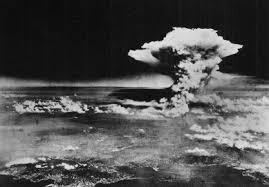Hiroshima Day 2024: Date, History, and Significance
Introduction
Hiroshima Day is observed annually on August 6th to commemorate the atomic bombing of Hiroshima, Japan, during World War II. The event, which occurred in 1945, marked the first-ever use of a nuclear weapon in warfare, leading to catastrophic loss of life and widespread destruction. This day serves as a somber reminder of the devastating consequences of nuclear warfare and the enduring impact on global peace and disarmament efforts.
Table of Contents
Date
Hiroshima Day 2024 falls on Tuesday, August 6th. The date remains consistent each year, marking the anniversary of the day the atomic bomb was dropped on Hiroshima. This day is recognized globally, with various events and memorials held to honor the victims and promote a message of peace.
Historical Context
1. The Bombing of Hiroshima:
- Background: During the final stages of World War II, the United States sought a swift end to the conflict with Japan, which had refused to surrender unconditionally. After extensive deliberation, the decision was made to deploy the newly developed atomic bomb, hoping to force Japan’s surrender and avoid a prolonged invasion.
- The Attack: On August 6, 1945, at 8:15 a.m., a U.S. B-29 bomber named Enola Gay dropped the atomic bomb known as “Little Boy” on the city of Hiroshima. The bomb exploded with an estimated force of 15 kilotons of TNT, instantly destroying much of the city.
- Immediate Impact: The explosion caused unprecedented destruction. Approximately 70,000 to 80,000 people were killed instantly, with thousands more succumbing to injuries and radiation exposure in the following days. The intense heat and blast resulted in fires that consumed the city, leaving behind a desolate landscape.
2. Aftermath and Effects:
- Casualties: The immediate death toll was staggering, but the long-term effects of radiation exposure led to further suffering. By the end of 1945, estimates of total deaths reached 140,000. Survivors, known as hibakusha, faced chronic health issues, including cancer, radiation sickness, and genetic damage, affecting subsequent generations.
- Physical Destruction: The bomb obliterated approximately 13 square kilometers of the city, destroying homes, businesses, and infrastructure. The devastation left tens of thousands homeless and severely disrupted the city’s economy and society.
- Psychological Impact: The psychological trauma experienced by the survivors was profound. The memory of the event haunted those who lived through it, leading to ongoing mental health struggles and a pervasive fear of nuclear annihilation.

3. Global Response and Consequences:
- Japan’s Surrender: On August 15, 1945, Japan announced its surrender, leading to the end of World War II. The bombings of Hiroshima and Nagasaki, which followed on August 9th, were pivotal in this decision, though they sparked significant ethical and moral debates.
- Nuclear Arms Race: The use of atomic bombs in Japan marked the beginning of the nuclear age. The United States’ demonstration of nuclear capability spurred a global arms race, with the Soviet Union developing its own atomic bomb by 1949, leading to heightened tensions during the Cold War.
- International Movements for Peace: The horrors of Hiroshima galvanized international efforts to prevent future nuclear conflicts. The establishment of the United Nations and subsequent treaties aimed at nuclear disarmament reflect the desire for global peace and security.
Significance of Hiroshima Day
1. Memorialization and Reflection:
- Remembering the Victims: Hiroshima Day serves as a day of remembrance for the victims of the bombing. Ceremonies and memorials are held worldwide to honor those who lost their lives and to support the survivors who continue to bear the scars of the attack.
- Hiroshima Peace Memorial Park: In Hiroshima, the Peace Memorial Park stands as a poignant symbol of the tragedy. The park includes monuments, museums, and the Atomic Bomb Dome, a preserved ruin that serves as a stark reminder of the devastation.
- Promoting Peace Education: The day emphasizes the importance of peace education, teaching future generations about the consequences of nuclear warfare and the necessity of working towards a peaceful, nuclear-free world.
2. Advocacy for Nuclear Disarmament:
- Global Disarmament Efforts: Hiroshima Day highlights the ongoing struggle for nuclear disarmament. Organizations like the International Campaign to Abolish Nuclear Weapons (ICAN) and various NGOs work tirelessly to promote policies aimed at reducing and ultimately eliminating nuclear arsenals.
- Treaty on the Prohibition of Nuclear Weapons: The Treaty on the Prohibition of Nuclear Weapons (TPNW), adopted in 2017, represents a significant milestone in disarmament efforts. Hiroshima Day reinforces the call for nations to ratify and adhere to this treaty, moving towards a world free of nuclear threats.
- Public Awareness and Activism: Hiroshima Day inspires activism and advocacy, encouraging individuals and communities to engage in dialogues and initiatives that challenge the proliferation of nuclear weapons and promote global peace.
3. A Call for Global Unity and Cooperation:
- Building a Peaceful Future: Hiroshima Day serves as a reminder of the need for international cooperation in addressing global challenges. The shared history of the atomic bombings underscores the interconnectedness of humanity and the necessity of working together to ensure a peaceful future.
- Addressing Modern Threats: While the memory of Hiroshima looms large, contemporary issues such as climate change, terrorism, and geopolitical conflicts demand collective action. Hiroshima Day calls for a renewed commitment to diplomacy, conflict resolution, and sustainable development.
Conclusion
Hiroshima Day is a solemn occasion that honors the memory of those affected by the atomic bombing and underscores the urgent need for peace and disarmament. As we observe Hiroshima Day in 2024, it is an opportunity to reflect on the lessons of history, recognize the enduring impact of nuclear weapons, and commit to building a future where such tragedies are never repeated. Through education, advocacy, and global cooperation, we can work towards a world where peace prevails, and the shadow of nuclear warfare is forever banished.







